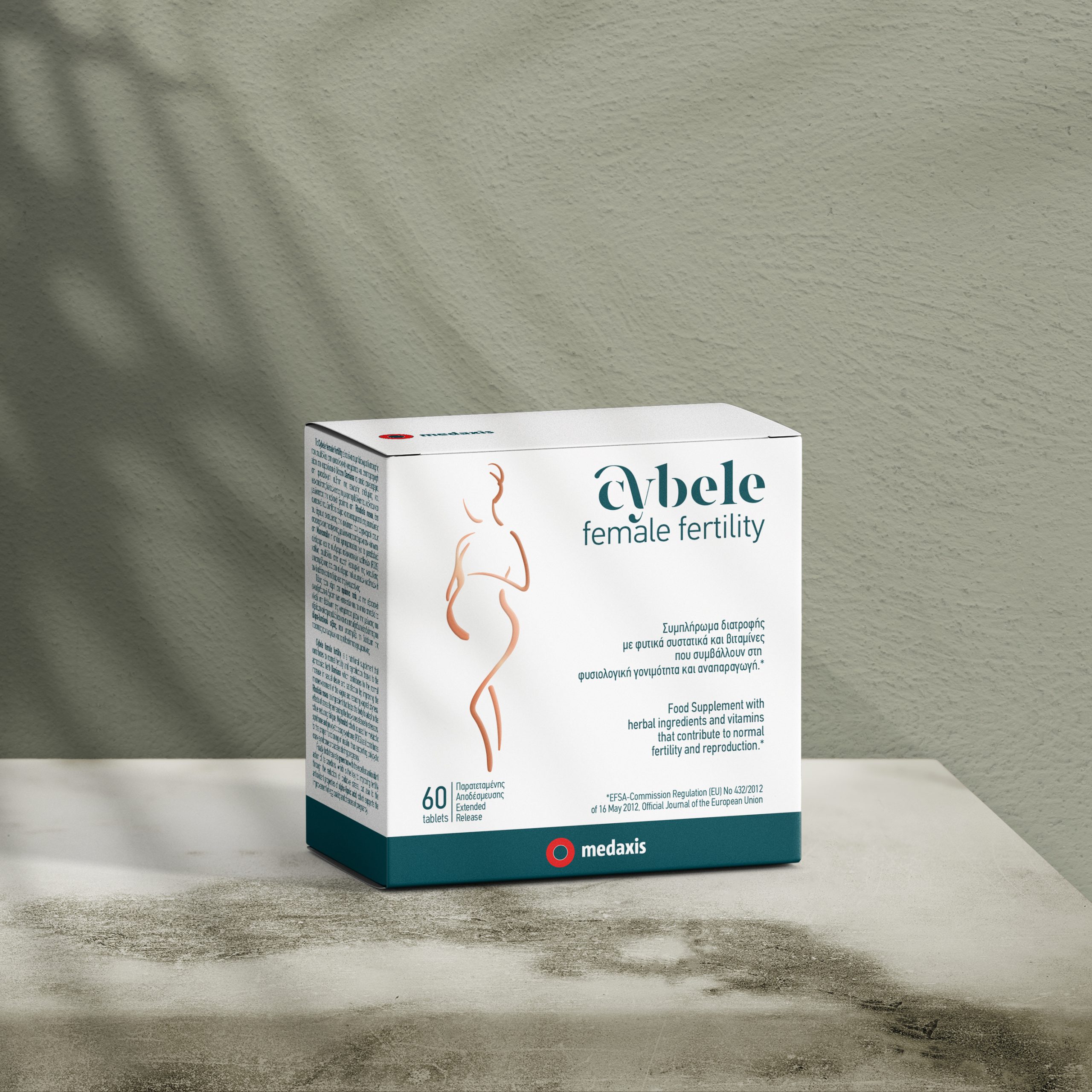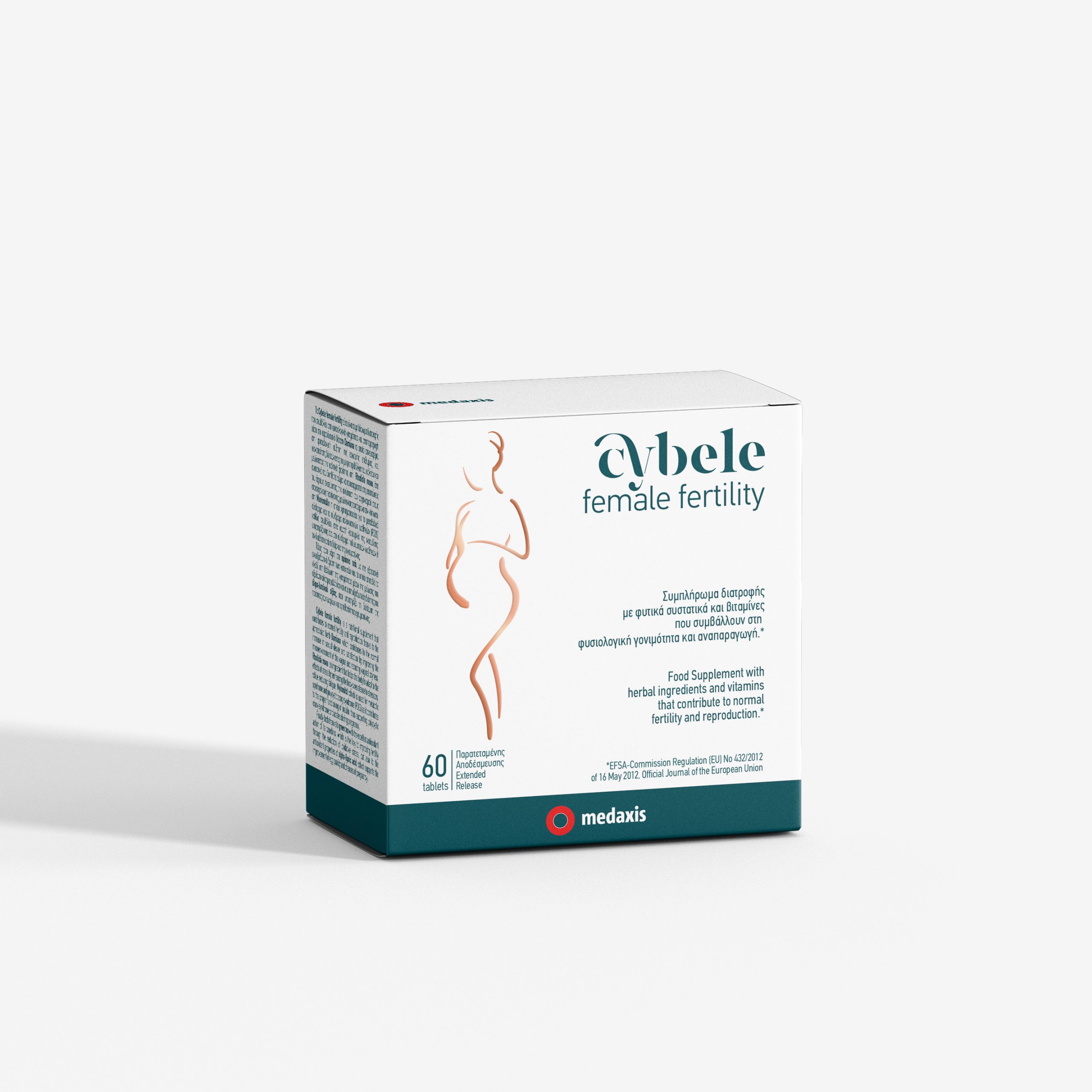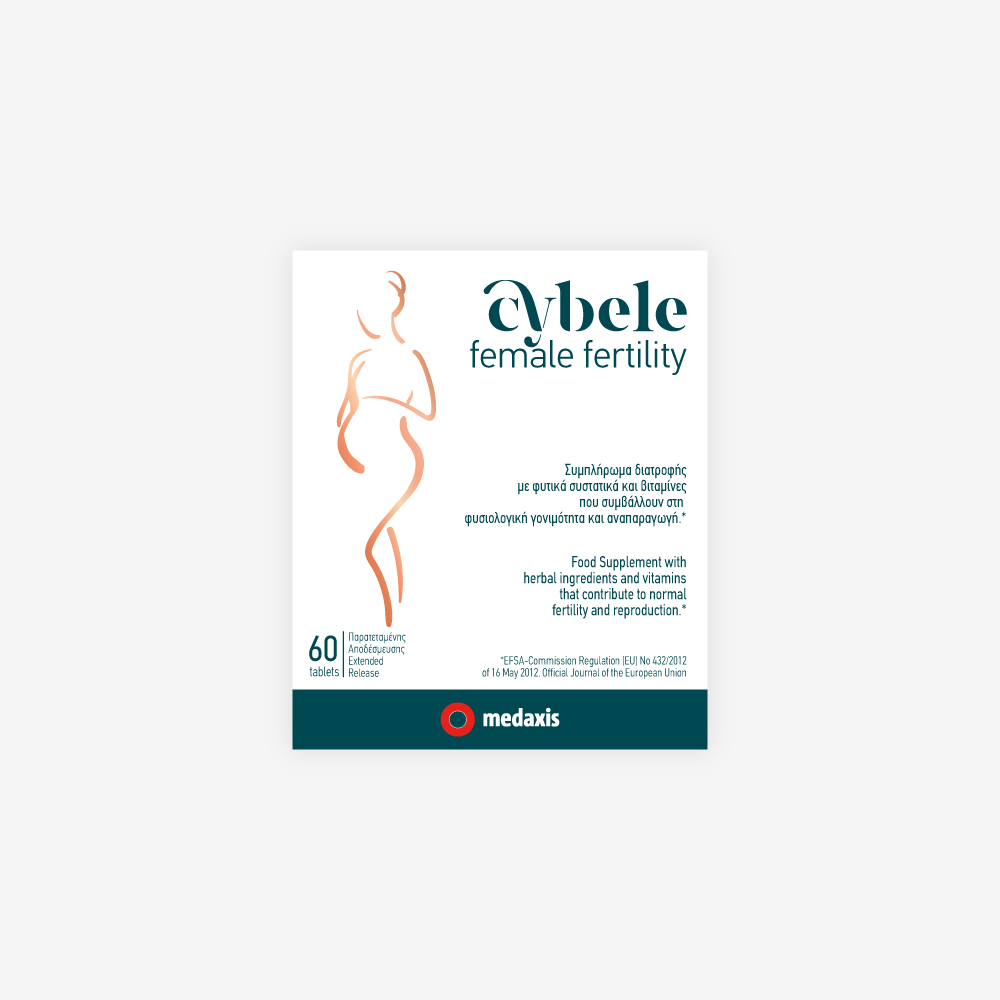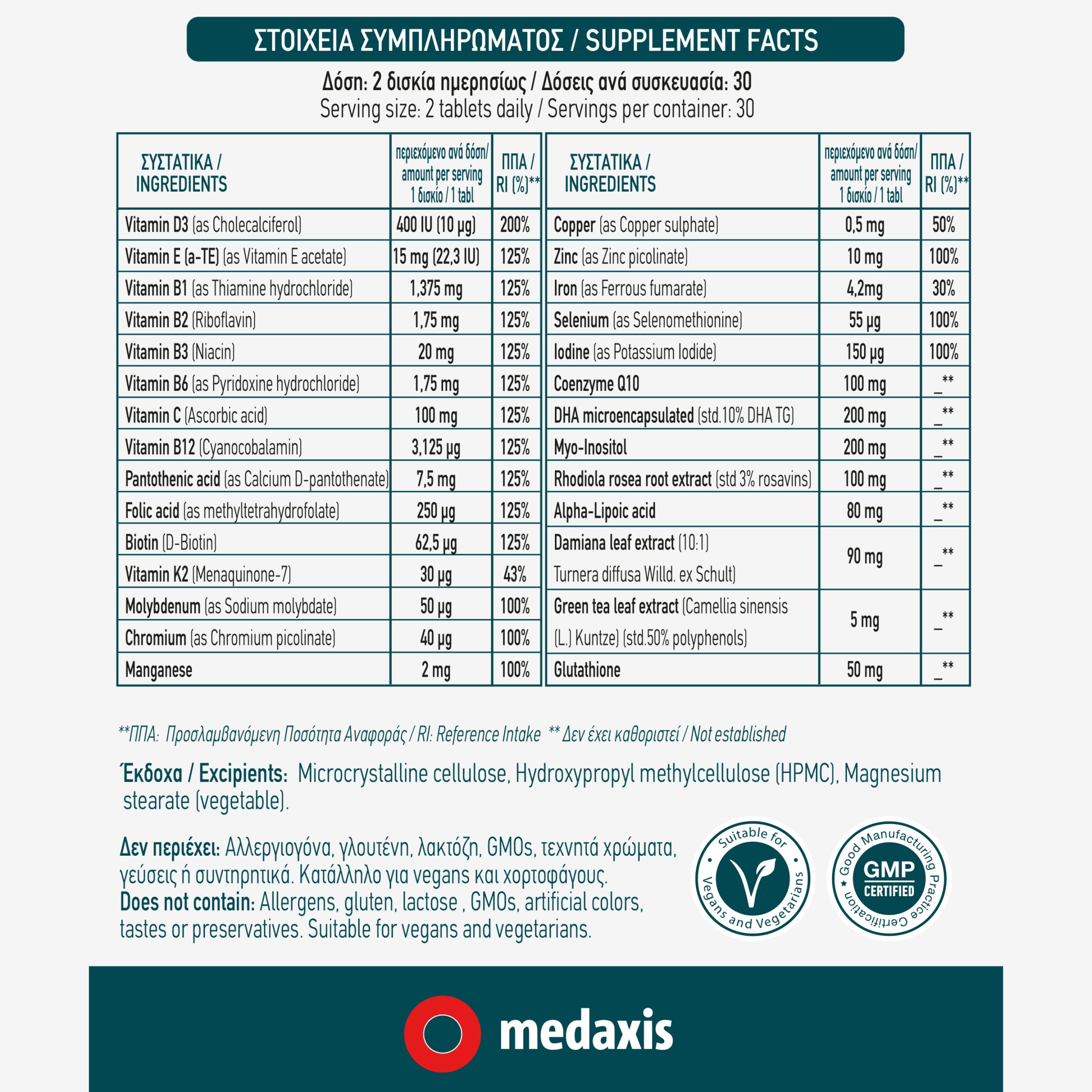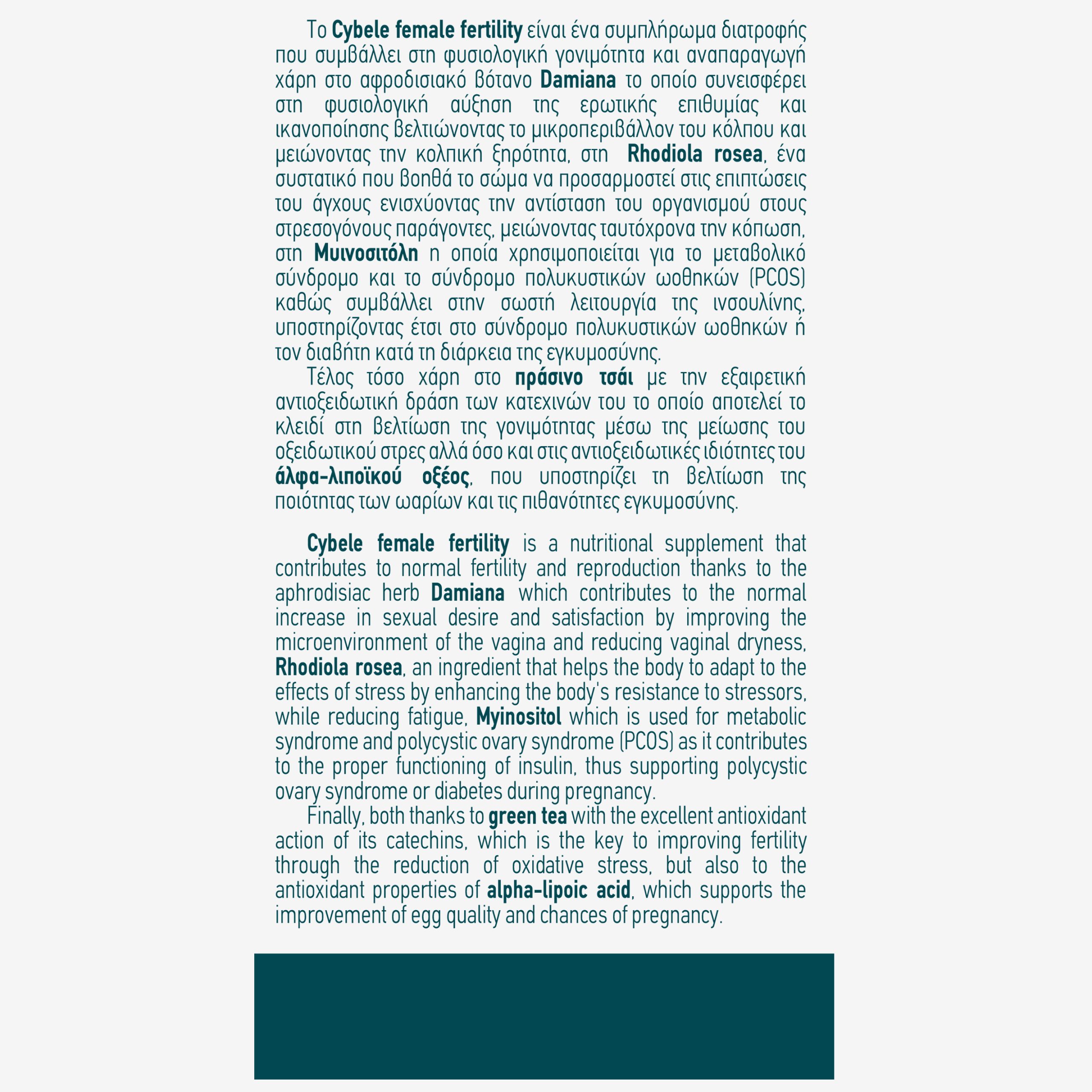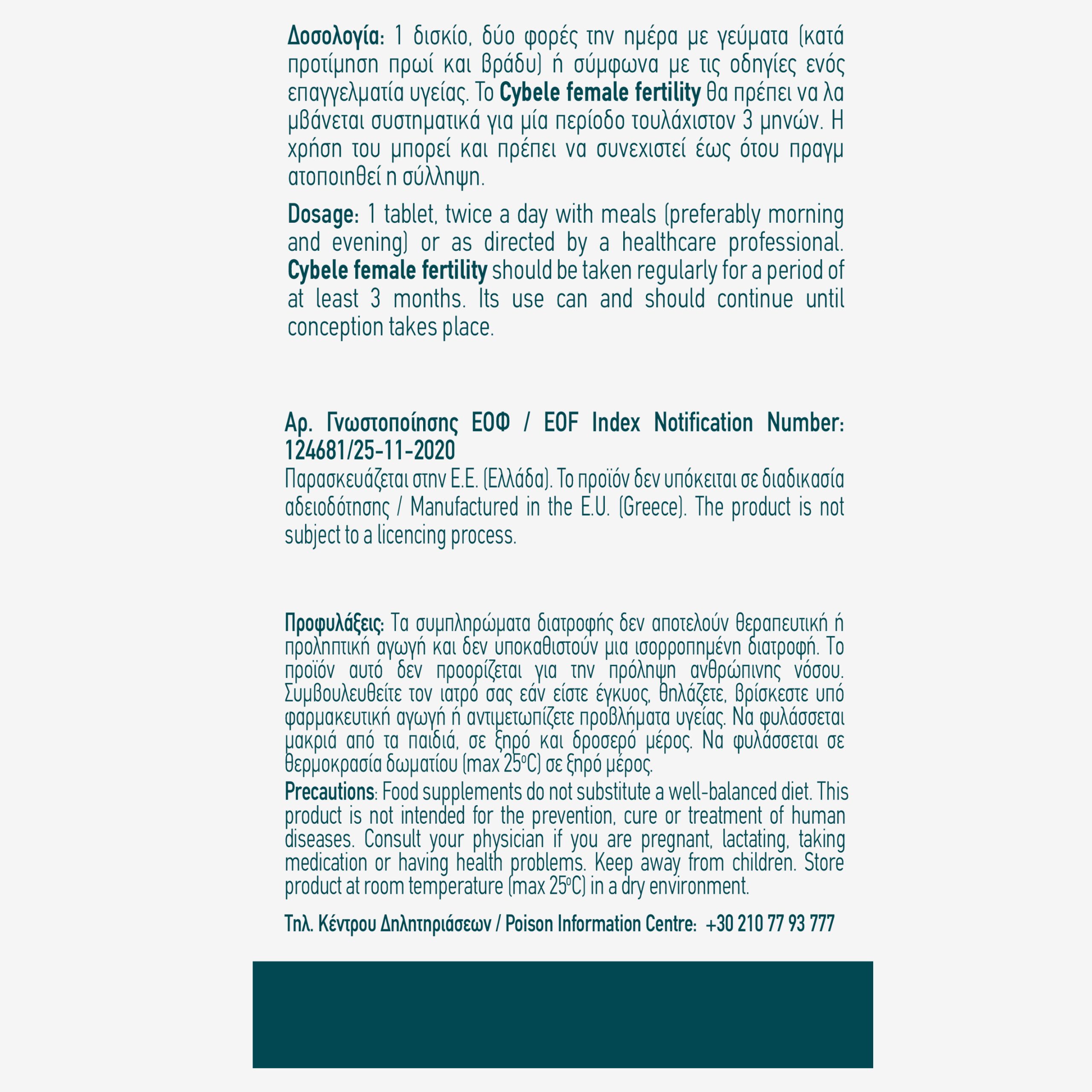Cybele Female Fertility
Fertility and reproduction
- Zinc contributes to normal fertility and reproduction.
- Folic acid contributes to normal blood formation, normal maternal tissue growth and plays a role in the process of cell division.
Protection of cells from oxidative stress
- Vitamin C, vitamin E, manganese, riboflavin, selenium, copper and zinc contribute to the protection of cells from oxidative stress. Oxidative stress is an important factor in fertility [4,5].
Energy production and reduction of fatigue
- Vitamins B2, B3, B5, B6, B12, C, magnesium and iron contribute to normal energy productions as well as reduction of fatigue.
- Iron contributes to normal oxygen transport in the body.
- Vitamin C increases iron absorption.
- Copper contributes to normal iron transport in the body.
Immune function
- Vitamins B6, B12, C, D, selenium, iron, folic acid, copper and zinc contribute to the normal function of the immune system.
Claims that reinforce the nutritional goal of Cybele female fertility
- Zinc contributes to normal DNA synthesis.
- Vitamin B6 contributes to the regulation of hormonal activity.
- Pantothenic acid contributes to normal synthesis and metabolism of steroid hormones, vitamin D and some neurotransmitters.
- Thiamine contributes to the normal function of the heart.
Claims of clinical studies regarding ingredients in Cybele female fertility associated with imporved fertility [7-30].
The effect of ω-3 fatty acids, especially EPA and DHA, may positively affect pregnancy and improve the cognitive and visual performance of infants. Pregnant women as well as those wishing to conceive, often consume low levels of omega-3 fatty acids usually found in fish because of concerns regarding possible heavy metal contamination. It is important, therefore, during prenatal care, to ensure the daily intake of omega-3 fatty acids from dietary supplements. Cybele Female Fertility also contains specialized ingredients that positively affect many fertility parameters such as Rhodiola rosea, Damiana (Turnera diffusa), DHA (omega 3) and myoinositol.
Ingredients
Damiana (Turnera diffusa or aphrodisiaca) is a shrub that naturally grows in Central and South America and the USA, and belongs to the Passifloraceae family. Since ancient times it has a reputation as an aphrodisiac herb with a clear invigorating effect on the central nervous and endocrine systems. Various studies in the scientific literature emphasize the aphrodisiac and rejuvenating characteristics of the plant, while contributing to the normal increase of sexual desire and satisfaction in women both before and during menopause. At the same time it is reported to improve the microenvironment of the vagina, reducing vaginal dryness, increasing sexual desire, sexual intercourse and orgasm, and improving the sensation of the clitoris. It is also traditionally used to support the healthy mood and healthy function of the urinary system. Rhodiola rosea is considered an adaptogen, which means that it helps the body adapt to the effects of stress. It is traditionally used to adjust the menstrual cycle. In a study of 40 women with amenorrhea (loss of menstrual cycles), 100 mg of Rhodiola rosea was given twice daily for 2 weeks. In some women the pattern was repeated 2-4 times. Normal menstruation was restored in 62.5% (25/40 women), 44% of which (11/40) became pregnant. Rhodiola, also known as arctic or golden root, contains more than 140 active ingredients, the two most potent of which are rosavin and salidroside. It is traditionally used to calm the symptoms of anxiety. It also boosts the body’s resistance to stress factors, improves memory and concentration, and reduces fatigue.
DHA is an omega-3 fat that we should consume from foods, supplements or both, as our body does not produce much of it. It can help prevent or improve chronic conditions such as heart disease, Alzheimer’s disease, depression and inflammatory diseases. DHA is also essential for sperm health and a healthy pregnancy. It acts synergistically with Alpha Lipoic Acid (ALA).
Alpha Lipoic Acid (Alpha Lipoic Acid) is an organic compound found in all human cells. It is well known for its strong antioxidant properties. Alpha-lipoic acid is both water- and fat-soluble, which allows it to function in any cell or tissue in the body. The antioxidant properties of alpha- lipoic acid have been linked to many benefits, including lower blood sugar levels, reduced inflammation, slower skin aging and improved nerve function. Humans only produce alpha-lipoic acid in small quantities.
Glutathione (GSH) is also a very powerful antioxidant. It has a huge ability to fight oxidative stress and neutralize harmful free radicals. Chemically, glutathione is a tripeptide that consists of 3 amino acids: Glutamic acid, Cysteine and Glycine. The body uses glutamic acid to produce glutamine. When these three amino acids are combined into glutathione, they gain the power to detoxify dangerous free radicals, toxic drugs and heavy metals. This mechanism protects the whole body from dysfunction and disease.
Myoinositol is a vitamin-like substance. It is mainly used in cases of metabolic syndrome and polycystic ovary syndrome (PCOS). Its function is that it can balance certain chemicals in the body to possibly help with mental illnesses such as panic disorder, depression and the like. It can also help insulin work better. This can help with conditions such as polycystic ovary syndrome or diabetes during pregnancy. In a clinical study of 3602 patients with PCOS and infertility, myinositol and folic acid were administered for 3 months. According to the results, 70% (2.520 women) showed an improvement in their menstrual cycle. Among them, a total of 15.1% became pregnant (545 women). In a subgroup of 32 patients where hormonal values were evaluated before and after treatment, a significant improvement in androgen levels and an increase in progesterone levels were observed.
Green tea to reduce oxidative stress
Oxygen free radicals (ROS) are present in low levels in the genitals of men and women. Excessive growth leads to oxidative stress that damages DNA, lipids and proteins. In women, oxidative stress interferes with egg maturation and may inhibit oocyte maturation in vitro. The excellent antioxidant action of catechins of green tea is the key to improving fertility by reducing oxidative stress. In particular, epigallocatechin-3 (EGCG) is considered the most promising bioactive compound in green tea due to its strong antioxidant activity.

